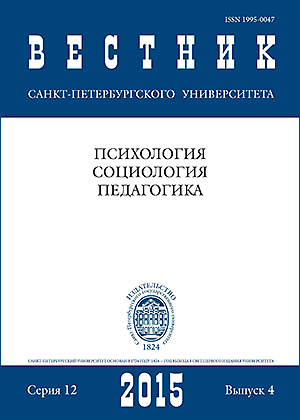SOCIAL PROBLEMS AS A DISCOURSE: PRODUCTION OF NEW FORMS OF SOCIAL INEQUALITY
Abstract
In recent decades, the attention becomes scarce not only in politics and economics, but also in the social sphere. Problematization may be considered as the way of attracting attention to the negative circumstances and situations. The list of current social problems is not determined by their scale and impact, but by their attractiveness to different public groups. In this regard, the theory of social problems focusing on the rhetoric of statements (claims-making activity) is of particular relevance. Based on social constructionism (J. Kitsuse, P. Ibarra), we consider social problems as a specific discourse. In addition to the actualization of the situation and resource mobilization discourse of social problems produces and reproduces a system of inequality in accordance with the criterion of «belonging/not belonging» to a social problem. As a result, such groups as «victims of the problem» and the «source of the problem» are symbolically and discursively produced. These groups includes many forms of symbolic domination and control. The discourse of social problems acts as an «umbrella» for other types of discourses like medical and legal; it has its own system of notation, differentiation of individuals and groups, delegation of authority and attribution of responsibility. Experts and groups of power reproduce the proper concepts of equality (or normality), and evaluate various social groups as unequal. Groups of experts act with legitimizing arguments and claiming the exit with their solutions in the space of non-discursive practices (the implementation of measures of care, control, elimination). Refs 18.
Keywords:
social problems, social constructionism, discourse of social problems, social inequality, production of social inequality
Downloads
References
References
Downloads
Published
How to Cite
Issue
Section
License
Articles of "Vestnik of Saint Petersburg University. Sociology" are open access distributed under the terms of the License Agreement with Saint Petersburg State University, which permits to the authors unrestricted distribution and self-archiving free of charge.




